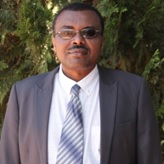Bio
Fekadu Beyene Kenee is a professor of Institutional and Resource Economics at Haramaya University, Ethiopia. He received a PhD from Humboldt University, Berlin, Germany, and an MSc degree from Wageningen University, the Netherlands. He has taught various courses and conducted research on issues including sustainable land management, customary pastoral land administration, food security and land use systems, climate change and pastoral adaptations, and natural resource-based conflict. He has also supervised graduate students working on sustainable watershed management, collective action in forest management, the influence of settlement on rangeland ecosystems and livelihoods, the impact of climate change on fisheries, challenges in the management of wildlife sanctuaries and related conflicts between conservation interventions and local livelihoods. He has obtained research grants from the following organizations: International Foundation for Science, Drylands Coordination Groups, Centre for International Governance Innovation, and Centre for World Food Studies. He provided a number of consultancy services for different organizations including Alliance for Green Revolution in Africa (AGRA), World Food Program (WFP), Tetra-Tech ARD, Organization for Social Science Research in Eastern and Southern Africa (OSSREA), IGAD and UNDP. As a visiting scholar, he also taught postgraduate courses on Institutional and Behavioral Economics as well as Environmental Economics in the regional MSc Programs run by the African Economic Research Consortium (AERC). In addition, he has been providing training for practitioners working in various organizations on topics such as natural resource conflict management, gender, agriculture and natural resources, and participatory watershed management. As a result of his continued engagement in teaching and research, he has published forty-six journal articles, three discussion papers, one training manual, and two book chapters.

